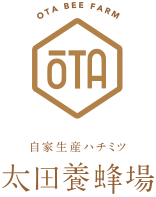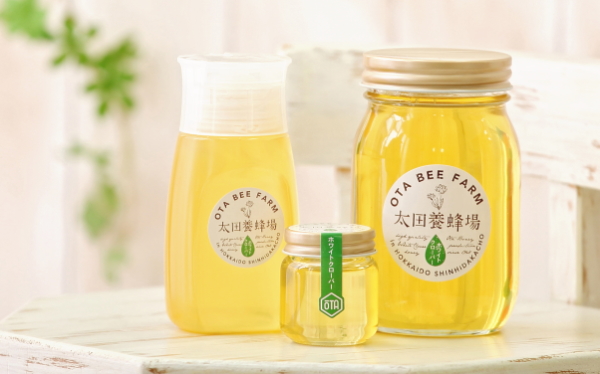The Story of Ota Bee Farm
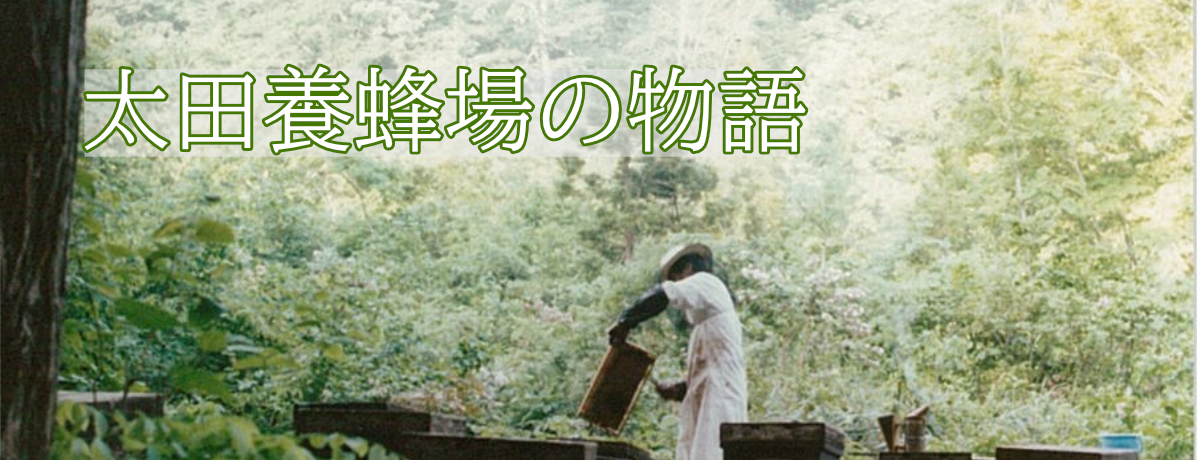
We aim to provide safe, reliable, high-quality honey from our own production.
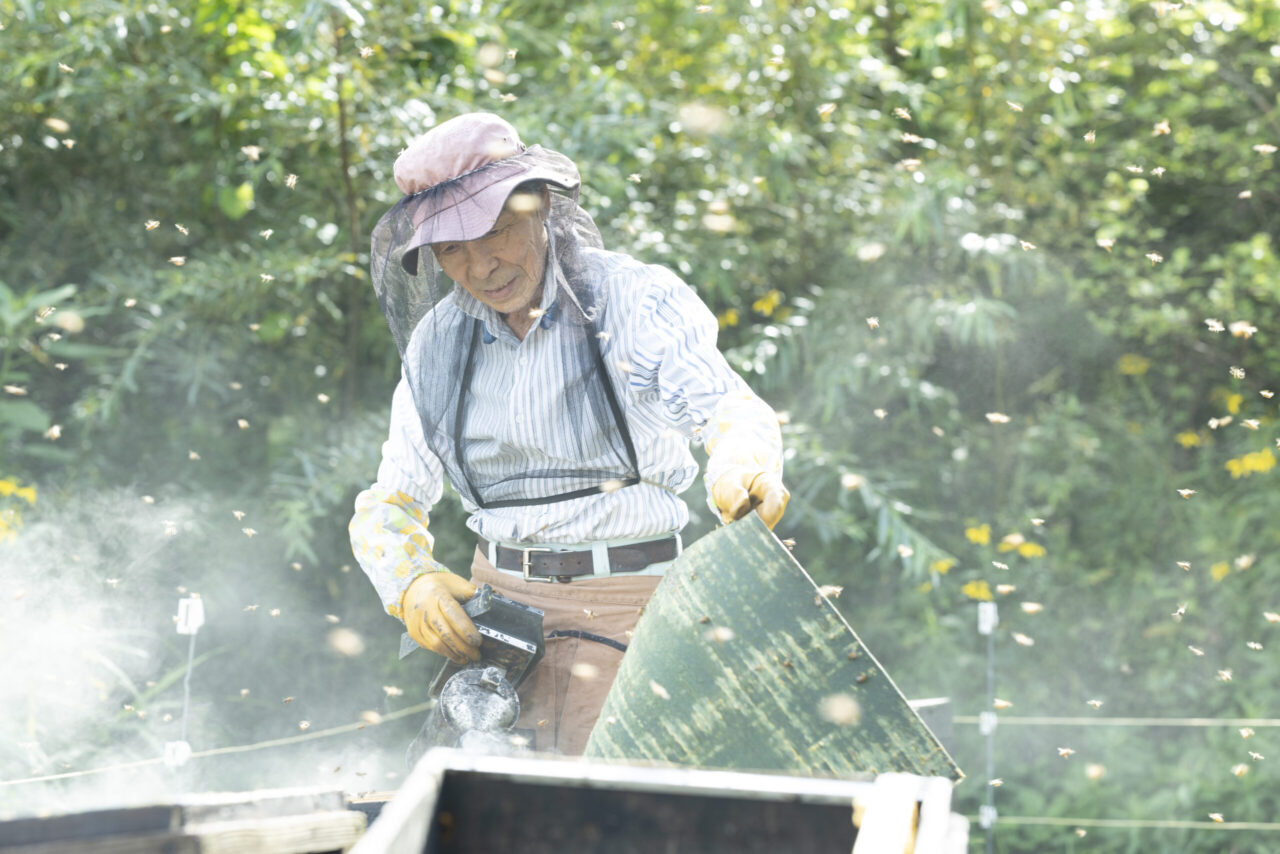
Ota Bee Farm is a small, family-run beekeeping farm based in Shinhidaka Town, Hokkaido, where we produce and sell honey.
Our owner is personally involved in production, and because we are committed to delivering only honey produced under our direct supervision, mass production is not possible.
Instead, our focus is on delivering safe, reliable, and high-quality honey that allows you to savor its authentic flavors and aromas. To achieve this, we work closely with our bees every day.
Fascinated by the allure of beekeeping…
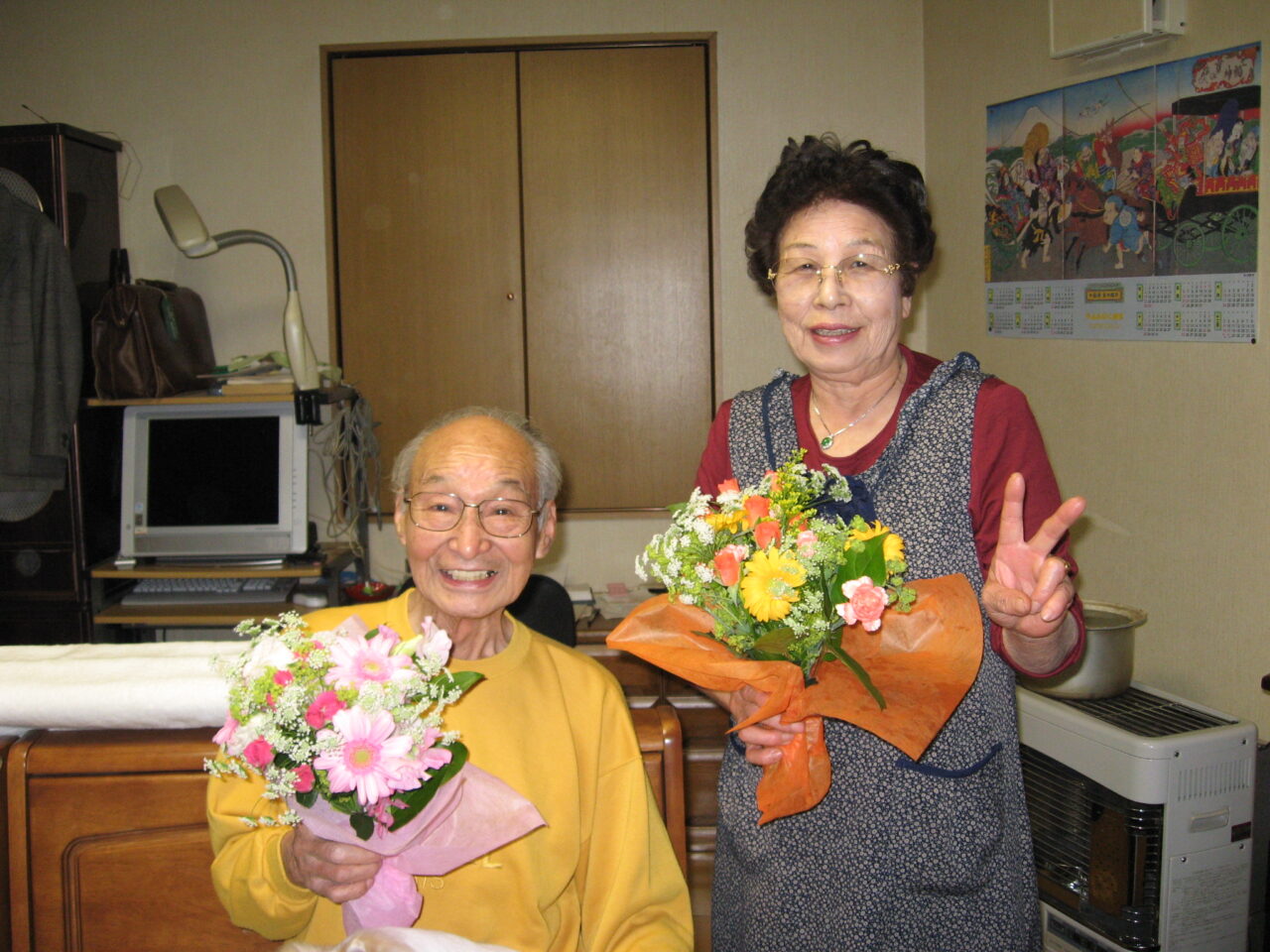
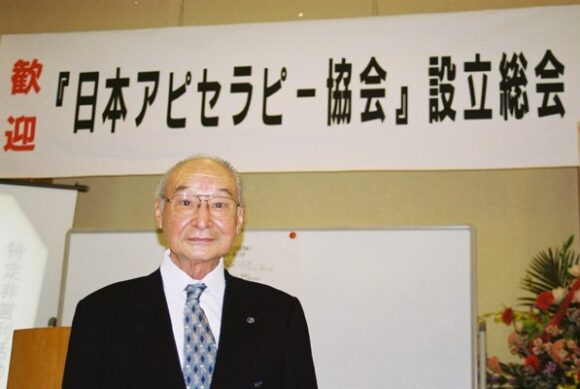
Ota Bee Farm began in 1948 when my grandfather, Naoki, apprenticed himself to a beekeeper. He was captivated by the romance of migratory beekeeping—traveling across Japan with honeybees to produce honey—and decided to start his own business.
Initially, he started the business in his local Hiroo Town. Later, he moved to Niikappu Town, and in 1976, he established our current shop in what is now Shinhidaka Town (formerly Shizunai Town).
Together with my hardworking grandmother, my grandfather overcame many hardships and laid the foundation for Ota Yohojo.
Once my father, Tadao, took over honey production, my grandfather dedicated himself to researching bee sting therapy (known as hōshin ryōhō in Japanese), a natural therapy using bee stings. He became a leading expert in Japan, giving lectures in countries like South Korea and China. People even came from overseas to learn about bee sting therapy from him.
As the culmination of his research, my grandfather established the NPO Japan Apitherapy Association, which was the first NPO established in the Hidaka region. He also co-authored a book titled “The Healing Power of Nature” (Shizenkai no Chiyuryoku) to promote apitherapy. Although the book is now out of print and generally unavailable except through our company, he remained dedicated to spreading awareness of apitherapy throughout his life.
Note: Apitherapy refers to natural therapies using honeybee byproducts such as honey, royal jelly, and bee venom (stings).
Ota Bee Farm Quality: Developed Over a Challenging Three-Year Period.
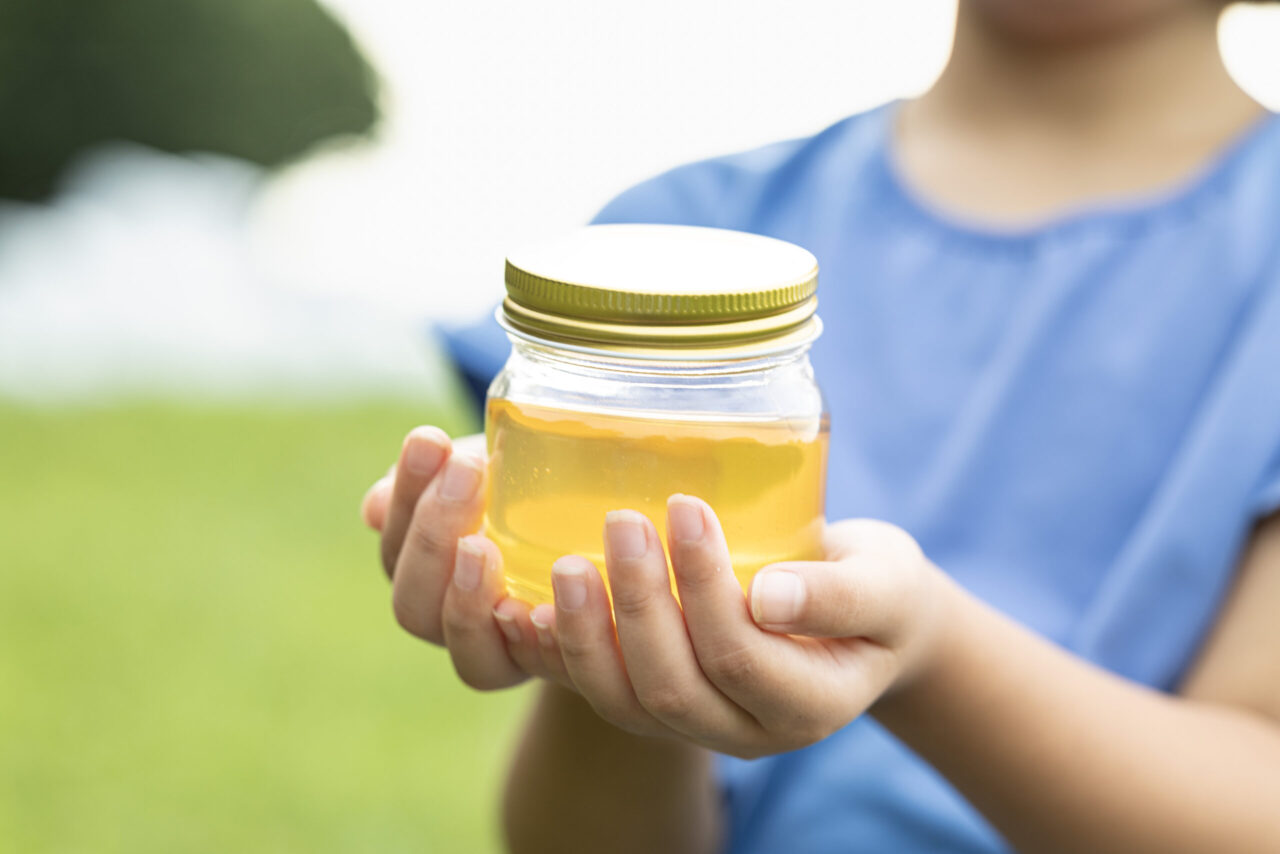
After my father, Tadao, took over the business, he continued production at the apiary sites (hōjō – locations where beehives are placed) in Hokkaido, Kagoshima, Tottori, and Akita that my grandfather had established. Through trial and error, he managed to maintain stable operations.
However, in 2009, due to a bee disease, we encountered difficulties raising the bees, leading to a situation where we couldn’t secure the necessary number of bees for honey production. Compounding this, unfavorable weather during the production season meant we were unable to harvest any honey at all.
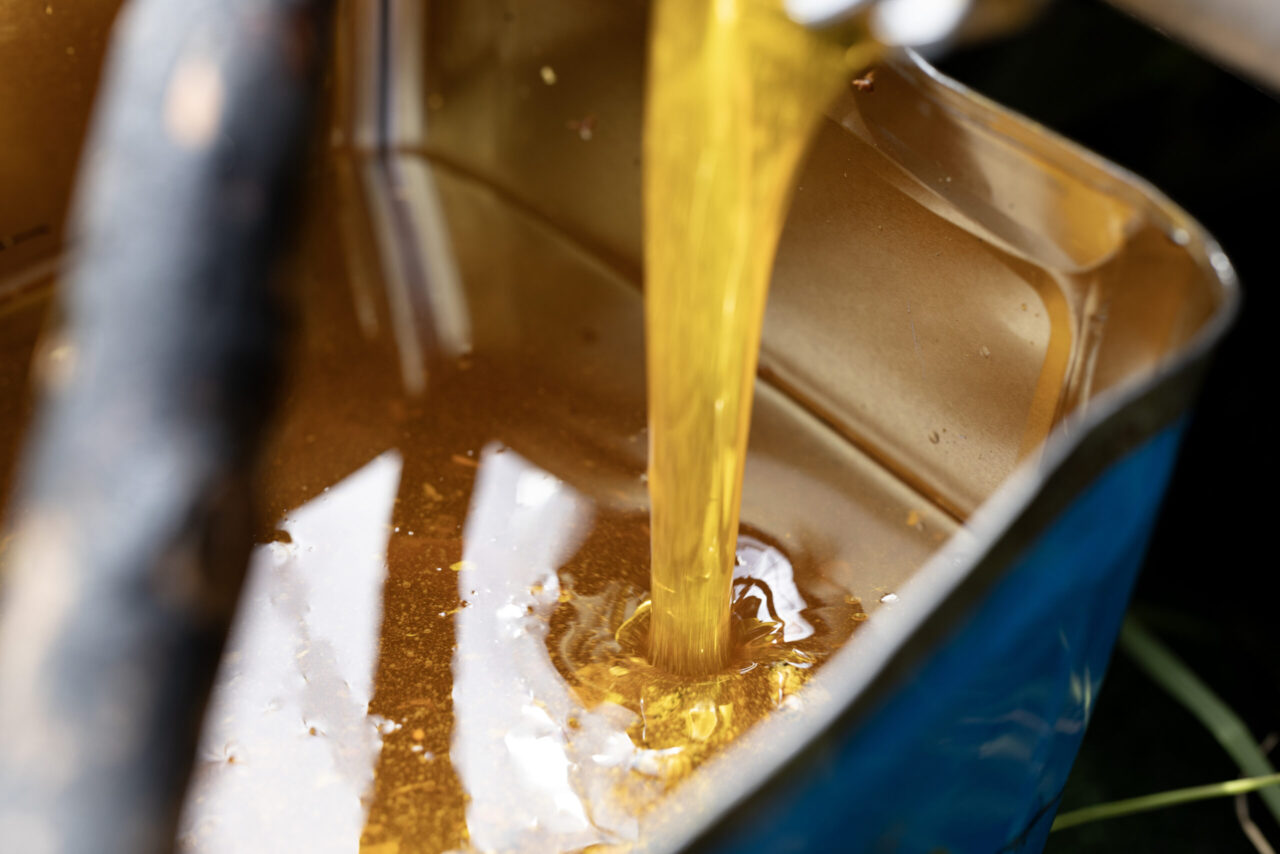
This dire situation lasted for three long years. It reached a point where, during family meetings, we discussed options like, “Maybe we should temporarily close the business and all go find work elsewhere…” Fortunately, with the help of fellow beekeepers and others, wemanaged to recover.
Still, having lost a significant number of bees, we could only place half the number of hives at our apiary sites compared to before.
At that moment, my father and our family made a firm resolve to face our bees with renewed dedication, essentially starting over from scratch.
When the first production season arrived after reducing the number of bees, we harvested honey from the fewer hives. We discovered that the honey had a richer flavor and aroma than ever before.
This led us to realize that reducing the number of hives placed in an apiary actually improves the quality of the honey.
Our customers noticed too, and we even started hearing comments like, “Once you’ve tasted Ota-san’s honey, you can’t eat any other honey.”
Simple & Continuing
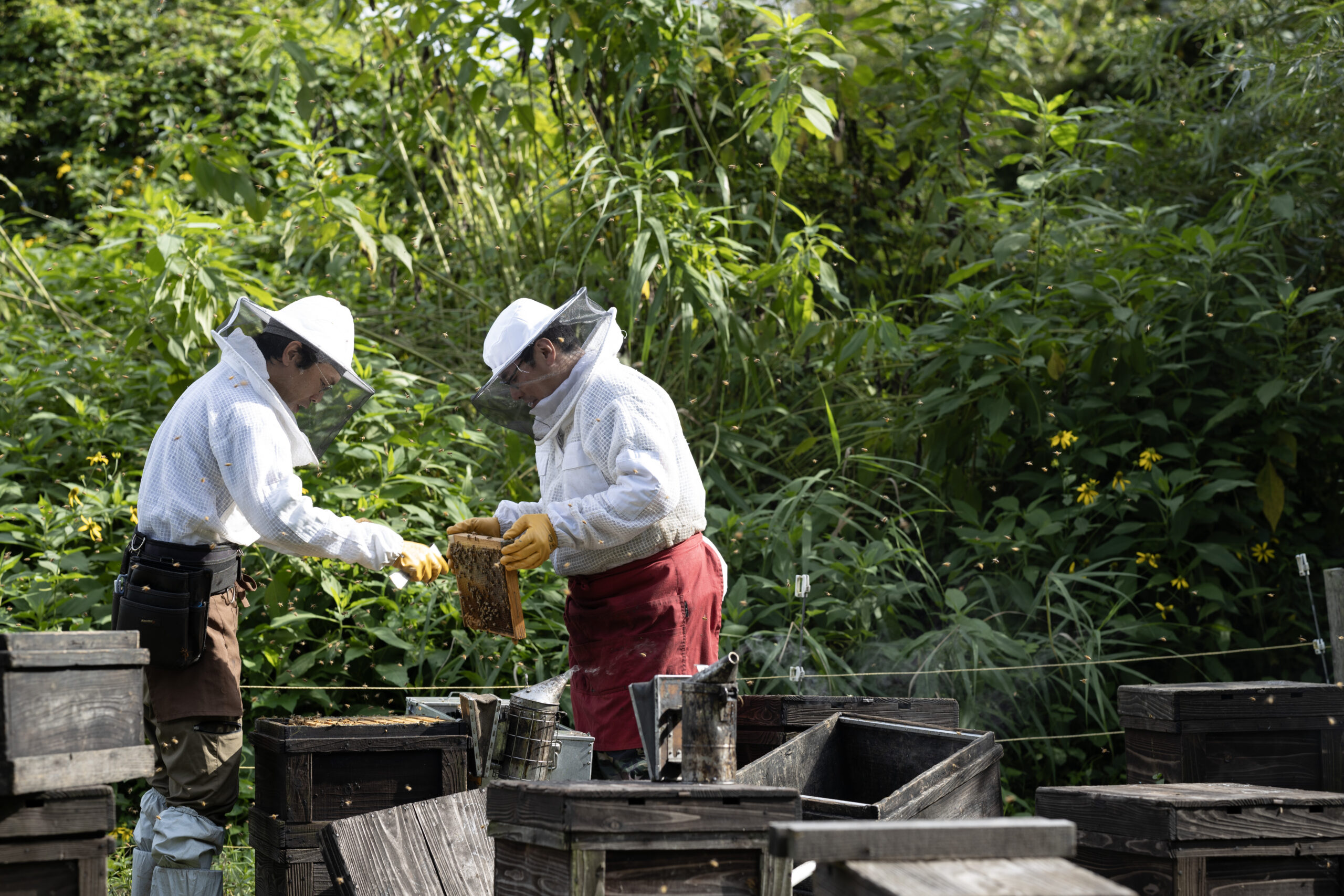
Currently, Ota Yohojo (Ota Apiary) is primarily run by the third generation: the eldest son, Kazunori, handles sales operations, and the second son, Naofumi, manages production. They work together, supporting one another.
Our father, Tadao, and mother, Ryuko, watch over and support the two brothers.
Carrying on the spirit and dedication of our grandfather and father, we at Ota Yohojo strive to produce high-quality honey – the “Ota Yohojo Quality” – that will bring even more joy to our customers.
In recent years, the circumstances surrounding beekeeping have changed significantly due to factors like climate change and deforestation. As production drastically decreased in Tottori, we have stopped

migrating our bees there. Currently, we focus on raising bees and producing honey in Kagoshima, Akita, and Hokkaido.
Even amidst these changes, we remain committed to producing our honey carefully and meticulously, coexisting with nature and feeling gratitude for the abundant blessings we receive from the natural world, the earth, and above all, the honeybees that sustain us.
We intend to continue delivering products you can purchase with peace of mind and services that allow you to enjoy our honey.
Although we are a small, family-run apiary, we appreciate your continued support.
Natural Honey, Produced In-House
At Ota Yohojo (Ota Apiary), we produce and sell up to eight distinct varieties of Japanese honey, featuring honey from our local Hidaka region in Hokkaido, as well as other parts of Japan. This product lineup represents one of the most extensive selections available from an apiary in Japan that produces its own honey.
Please note: International shipping is only available for products purchased through the website linked via the button above.
Product Inquiries ⇒ kazunori_ota@otayouhou38.com
